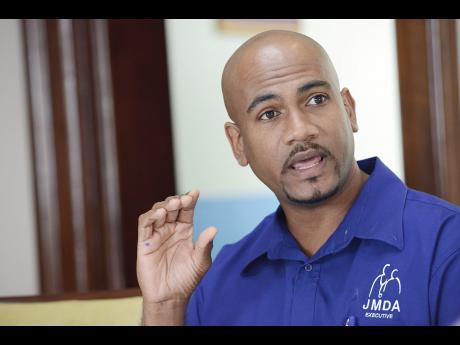Dr Alfred Dawes | Beyond the murders ... The realities of how crime is killing us
While we get alarmed at the news of the high murder rate gripping the island, we are numbed to fact that hundreds more are wounded in the ongoing war between gangs and targeted innocents.
The wounded suffer devastating injuries, at times requiring multiple operations, critical care, and prolong hospitalisation. These victims of crime are no less counted because of their fortune to survive, as they have to live with the emotional and physical pain of their injuries.
Murder statistics are easily recited, but who honestly can give a ballpark figure of the number of shootings occurring annually? These ignored victims of the crime wave are the ones feeling the brunt of the lawlessness in our country.
It is said that if you truly want to defeat a country with which you are at war, do not endeavour to kill all their soldiers. Instead, aim to maim as many as possible. The army still loses a fighting man and the state is bankrupted caring for the wounded. Such is the case in our public hospital system, as we spend millions of dollars caring for the wounded in this undeclared war.
Recently, the Kingston Public Hospital (KPH) had to suspend accepting transfers from other hospitals as there was no way they could offer care to 'outsiders', given the massive influx of trauma victims the hospital was facing. This should not be taken lightly.
KPH is the ultimate referral centre for all public hospitals and clinics across Jamaica.
Complex medical conditions are treated by teams of specialists concentrated in that institution specifically for that purpose. Whenever a patient requires such care that is out of the realm of the facility at which they are being treated, their best chance of survival is to transfer to a specialist hospital like KPH or Cornwall Regional Hospital (CRH).
With the air-quality issues at CRH and subsequent relocation and scaling down of services, the best option for transfers has been KPH in the past few months. Now with KPH in problems, what is going to happen to the entire health service in Jamaica?
CONVERTED TO MILITARY HOSPITAL
This, for once, is not a matter of poor planning or poor administration of the public-health sector. This is the largest hospital in the English-speaking Caribbean being overwhelmed by trauma cases in a country that is not at war.
With the deluge of trauma patients, the hospital has essentially been converted to a military hospital caring for the wounded, with all other emergency and urgent patients relegated to second-tier status.
Already persons are forced to turn to other hospitals, such as the Spanish Town Hospital, which, according to news reports, has seen a significant increase in their patient load.
Hospitals far away from the battlefield are also feeling the pinch, as they are forced to administer care to critical patients who really should not be there beyond a few hours.
We are often quick to turn on hospital staff because of long waiting times and because of the poor customer service delivered by some, but with the strain on the hospitals caused by epidemics of infectious diseases and now an epidemic of violent crime, it is the will of the staff to deliver care in such extreme conditions that has prevented the total collapse of the sector.
This sacrifice comes with a heavy price tag, as the rates of stress and depression among healthcare workers are high. This partly accounts for the high attrition rates seen and the low morale noted, especially in institutions where the environment is highly stressed. Again, these victims of the crime wave are largely ignored because it's a non-story.
GOLDEN HOURS
Another group of individuals ignored by murder statistics are patients who have been waiting for treatment, sometimes for years, only to be bumped by trauma victims. The cold truth is that no matter how long you've been waiting in the Emergency Department, once you are stable, you will have increased waiting times once a trauma victim is rolled in. For patients bleeding out, minutes matter.
There is what is called the Golden Hours in trauma where if rapid intervention is done, usually within six hours, the risk of death and complications is significantly reduced. It is with this in mind why emergency staff will always prioritise a patient with major trauma.
The sadder truth is that persons who are stable can deteriorate over the waiting period to a point where their chances of death and complications are significantly increased.
There is no statistic to measure how many persons have died or suffered complications because of the prolonged waiting times caused by treating trauma victims. Neither is there any statistic to see how many persons, whose surgeries are cancelled because of emergencies, end up with decreased productivity, complications, or died waiting for a lifesaving intervention.
COST BILLIONS
The victims of violent crime cost this country billions because of the compounding effects of their treatment. Less measurable is the effect on the psyche of the Jamaican people who have become so numb to violence that sharing gory videos and discussions on murders are the norm, while we ignore the near misses and unheralded victims of the epidemic of violence besieging us.
While chik-V and ZikV had classical epidemiological patterns with a peak that predictably went back to baseline, we have no idea if we have even reached the peak of the crime wave and if it will ever go down soon. This epidemic needs urgent intervention with lasting objectives and no more knee-jerk reactions. We simply can't afford it.
- Dr Alfred Dawes is a general laparoscopic and weight loss surgeon at the Island Laparoscopy and Medical Care. Email: info@islandlaparoscopy.com; yourhealth@gleanerjm.com.


